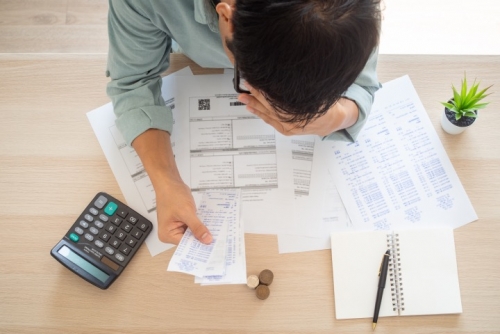Sunlight to the rescue of expensive utility bills in Bahrain
TDT | Manama
The Daily Tribune – www.newsofbahrain.com
Reported by Julia Cassano
July will likely be the warmest month on record, National Aeronautics and Space Administration (NASA) scientists say, which means that as temperatures soar, energy consumption is at an all-time high.
For much of the Arab world, "hot" has taken on a whole new meaning this summer, and as experts worldwide warn of climate-induced heatwaves, air conditioning is central to the region's survival.
But the real question lingers: how long will this last? When will the extreme temperatures plummet? As we all know, using more energy results in rising Electricity and Water Authority (EWA) bills, and with inflation at an all-time high, turning on the air conditioning can become extremely costly.
We are aware of the tips for reducing consumption, like changing air filters, adjusting your thermostat, and turning the appliance off when you’re not in the room. But, with raging temperatures that look to keep rising, the world may have to switch to more efficient methods to fight climate change as well as reduce monthly energy bills that many can’t afford.
"We are experiencing a changing world where we simply have to adapt," Rabie Abdalla, founder and CEO of Intelligent Renewable Trading, told The Daily Tribune. He explained that solar energy is the way to go to become an eco-friendly country as well as to reduce monthly EWA bills.
"Depending on the space on the roof of a building or house, 90 percent of consumption can be saved," he emphasised. Rabie highlighted a previous project in Hidd, where solar panels were installed on the roof of a big factory, and the owner was able to save over BD10,000 in just the first three months.
He, however, noted that it’s not just monetary benefits but rather joining in the fight to better the planet. "We also installed a system where it shows how much the solar system saves every month in energy as well as monetary value."
Underscoring this, he said that people installing solar systems on their property are not just cooling their house; these systems are used to provide all energy to the house. And what better place to do it than in the sunny country of Bahrain? "Depending on the space on the roof of a small villa, you will see a significant drop in your EWA bills when installing solar panels," he said.
"Let’s say the system required 15-20 KW; however, the villa does not contain the efficient space for the panels on the roof; the villa will still be able to save 50 percent each month with the space they do have.
But if the villa contains the required roof spacing, it will also be able to save up to 90 percent." Further explaining, he said if a villa accommodates a big family, energy consumption will be high, and EWA bills can easily reach BD300 if there is no government support. "Installing panels in high-energy-consuming villas can save up to 80 percent on bills."
Cost
When pointing out cost concerns, Rabie assured that such types of installments can be cost-effective. "Companies like ours offer easy installments for up to two years to support people if they cannot afford to pay the cost up front," he explained.
In Bahrain, residents can expect to pay BD4,000 for a small villa and BD7,000 for a big villa, with the solar system lasting a minimum of 20–25 years. Bahraini Nour told The Daily Tribune that she had misconceptions regarding solar energy and panels, as she believed the panels would have to be replaced after around 10 years.
"I thought the initial cost for installing the panels would be a waste if you would then have to replace them after a couple years. But after learning that they can last a minimum of 20–25 years, installing them seems worthwhile," she stated. Meanwhile, Bahraini Ahmed said that as he lives alone, his bills are relatively low.
"Since I live alone, installing solar panels would not benefit me as much. However, when I start a family and the cost of my bills significantly increases, I would then consider installing the system in my house."
Related Posts

